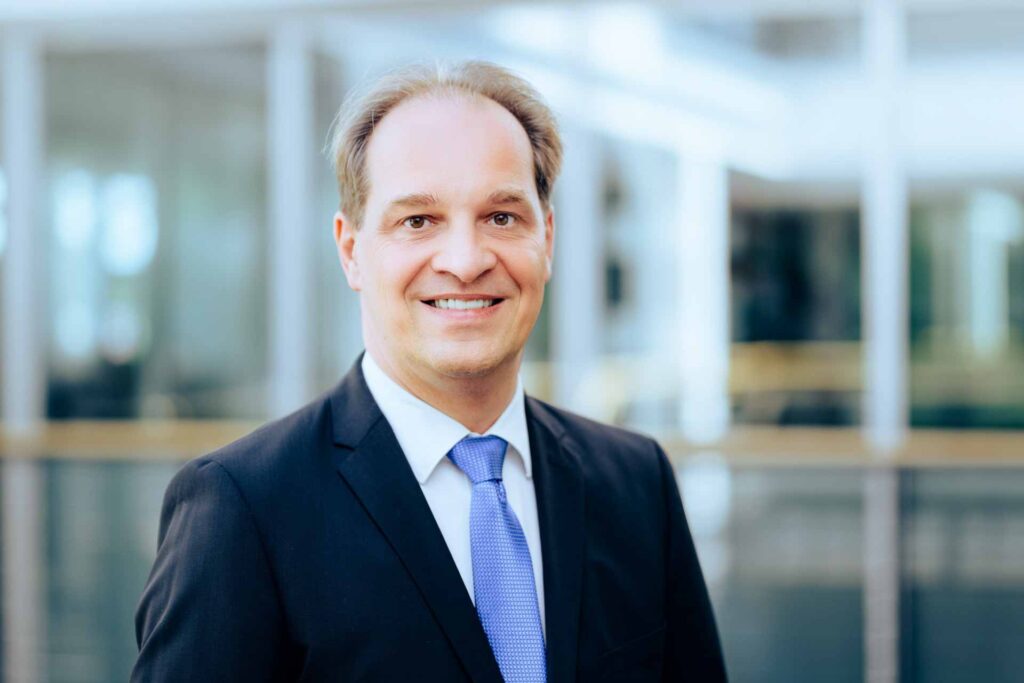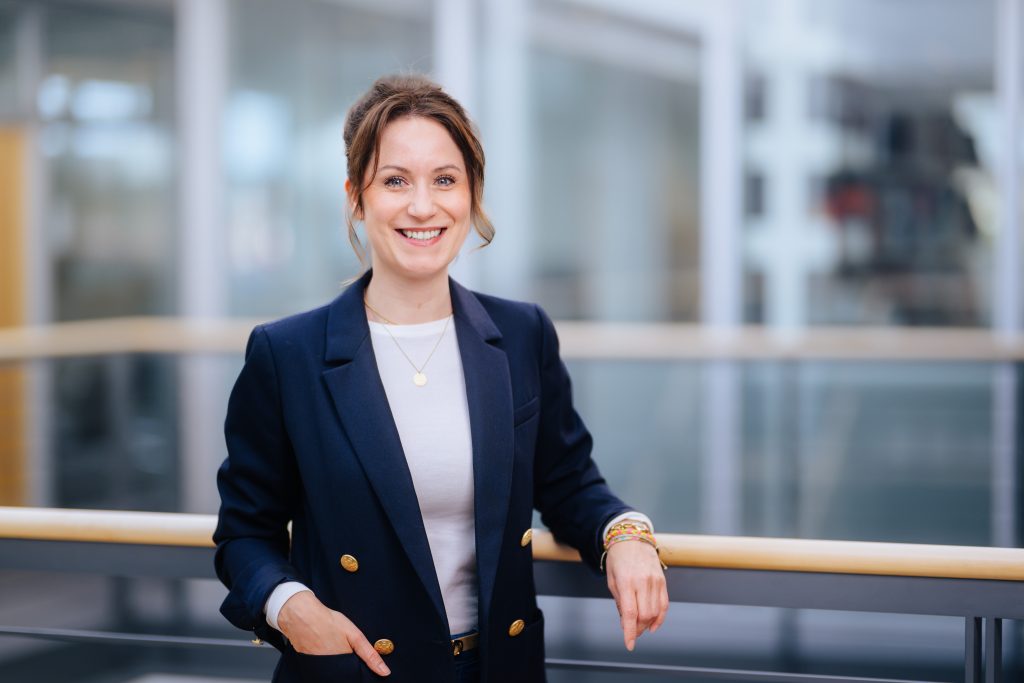Four schools across four German federal states are taking part in the Liz Mohn Foundation’s “Learning from each other!” project. The pilot project focuses on the principle of learning from younger people: teachers are empowered to responsibly integrate digital opportunities into the classroom in exchange with young experts who adopt the role of mentors. At the same time, the young mentors take on responsibility, strengthen their communication skills and promote digital education in the long term. Teachers, in turn, gain new insights into the digital world and reflect on their own teaching practice. The so-called ‘tandems’ jointly develop a digital project that can ideally be extended to the entire school.
At the invitation of the Liz Mohn Foundation, the schools now had the opportunity to present their new digital projects to the two initiators of “Voneinander Lernen!”, Elke Büdenbender and Liz Mohn, in Berlin. In addition to the Evangelisch Stiftisches Gymnasium from Gütersloh, the Don-Bosco-Schule from Rostock and the Ernst-Schering-Schule from Berlin, the Gemeinnützige Gesellschaft für Soziale Dienste from Nuremberg/Ingolstadt, which runs the vocational schools for nursing, geriatric care assistance and social care, also presented their new digital projects.
For example, a school company was founded with the idea of a tutoring app. A young start-up entrepreneur provided the decisive impetus for this in the classroom. Similarly, a digital pinboard enabled a teacher to teach the subject matter of a ballad in a creative, easy-to-understand and accessible way: creating a board made up of diary entries, colorful sketches or music videos with Playmobil figures.
The Instagram account of one school was also relaunched and pupils have now become part of the editorial team. This has resulted in a significant increase in the number of followers. The school also developed a digital “fact checker” for TikTok videos together with one of its mentors, which is being used in lessons on a trial basis. In addition, positive psychology was incorporated into one of the project ideas: with a new video series on this topic, a teacher reaches his students digitally as well as in the classroom and thus touches their lives.
In her welcoming remarks at the project meeting, founder Liz Mohn said: “Young people bring new ideas, questions, courage and digital skills to the table. They have something to say – so we need to give them a voice. People with life experience show different perspectives and often bring a sense of serenity. In our project, the participants can learn from each other’s expertise.” In her closing words, Elke Büdenbender summarized: “The willingness to change perspectives and the dialogue at eye level is what sets this project apart. I am delighted that so many different digital ideas have emerged and will continue to emerge.”
Role reversal as further education concept
Over the course of the “Learning from each other” project, one teacher and one digital expert from the younger generation meet regularly for a period of eight months. These one-to-one tandems focus on topics such as the use of digital tools in the classroom, current trends in social media and how to deal with cyberbullying. Mediated by “Digital8” under founder Paul von Preußen, the younger generation performs the role of mentors, marking a deliberate change of perspective in the traditional mentoring model.
With the “Learning from each other!” project, the Liz Mohn Foundation and the initiators have set themselves the goal of promoting digital skills among teachers, strengthening understanding between the generations and providing new impetus for the education sector. At the same time, young digital experts benefit from developing their skills in the areas of leadership and knowledge transfer. The findings from the project will serve as an example of best practice for future training formats in the education sector and will be summarized in an accompanying qualitative evaluation. A further project meeting of the participants in September this year will be held to discuss the continuation of the digital projects developed, the possible expansion to the respective schools and the transfer to other educational institutions.


